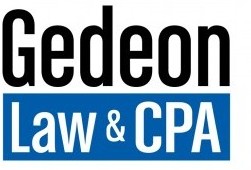At Gedeon Law & CPA, we specialize in dealing with the tax issues facing S corporation owners.
Case in point. The tax law dealing with health insurance for a greater than 2% S corporation shareholder-employee can be tricky.
It becomes even trickier when the S corporation does not pay for the health insurance premiums for all employees of the corporation.
First, if the S corporation pays the cost of health insurance to cover the owner, then the owner does not get this coverage as a tax-free fringe benefit.
Nevertheless, the S corporation owner will qualify for a tax-favored self-employed health insurance deduction on their personal tax return by including the health insurance premiums paid by the corporation as taxable wages. Specifically, the shareholder can now deduct the insurance premiums as an above the line deduction on Line 29 of Form 1040.
If the S corporation owner doesn’t include the premiums as taxable wages, then the owner can’t take a deduction for self-employed health insurance and is instead limited to deducting the premiums on Schedule A subject to a 10% adjusted gross income floor.
At this point, you are probably wondering whether or not the health insurance premiums reported as taxable wages by the owner are exempt from payroll taxes.
The answer to this question depends on whether or not the S corporation discriminates in the health insurance coverage it provides.
Fortunately, the IRS allows a S corporation with fewer than 50 employees to discriminate when it comes to covering employees with health insurance.
Unfortunately, when a S corporation has a health insurance plan that discriminates (pays the owners premiums only), the IRS subjects the cost of the insurance to the employer and employee portion of social security and Medicare taxes.
On the other hand, if the S corporation pays the health insurance premiums for all employees under a health plan that provides health insurance coverage to all employees and/or their families, then the cost of the insurance premiums is not a taxable wage to the non-owner employees.



